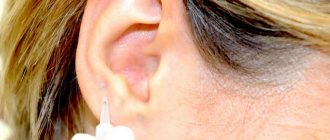Persimmon
Article on the topic
Orange New Year.
3 simple holiday dishes from persimmon A natural antidepressant that can relieve nervous tension, overcome seasonal depression, improve your mood, because this fruit is rich in magnesium and iodine, has a beneficial effect on the central nervous system and the thyroid gland - the creators of our well-being and mood.
Products against depression
Miracle foods against depression
Bad mood, depression or fatigue are not always associated with our psychological problems. Often it is enough to make adjustments to your usual diet, or even change it completely. Depression should not be eaten away (and we usually eat it with far from the healthiest foods), but overcome with those gifts of nature that force our body to produce hormones of pleasure and happiness, which increase tone and saturate us with energy. What are these miracle products?
Banana
One of the best sources of energy are bananas. You've probably noticed more than once that tennis players during breaks between games and cyclists during long races fortify themselves with bananas. They provide a “recharge” for an hour and a half of active work. In addition to a surge of strength, bananas also have a beneficial effect on the nervous system, as they contain a lot of vitamin B6, which our body converts into serotonin, which improves mood. When we are stressed, potassium levels in our body decrease, and bananas are a rich source of this trace mineral. Therefore, if you are very sad, treat yourself to a vitamin shake or smoothie with bananas. Or boost your energy with a healthy salad.
Chard (leaf beet)
Advertising on TV actively encourages us to buy vitamin complexes with magnesium as a remedy against irritability and depression. Whereas there is a vegetable such as chard, which contains this element in huge quantities. Externally, chard resembles spinach, has large leaves and is pleasant to the taste. In addition to magnesium, it also contains potassium and iron. Chard strengthens the immune system and enhances the body's protective functions. You can add it to salads, serve snacks on its leaves, and even make cabbage rolls.
Cherry tomatoes
The cherry tomato is small but big. Tasty, beautiful, and also healthy. And its secret is not only in its external attractiveness and decorativeness, but also in the fact that it contains a valuable antioxidant - lycopene, which helps in the prevention of cancer. Moreover, its amount increases with heat treatment of tomatoes, so salads with cherry tomatoes, seasoned with various healthy oils, promote the release of lycopene and rapid absorption by the body. In order for the body to receive the daily norm of minerals, it is enough to eat six to eight cherry tomatoes a day. And just like with bananas, eating tomatoes promotes the production of the antidepressant serotonin.
Cheese
Our body does not produce enough zinc, which is responsible both for our beauty, in particular for the condition of our skin and hair, and for a person’s psychological health. Therefore, the body needs to get zinc from food. One of the largest reserves of this valuable microelement is cheese. And although cheese is a fairly high-calorie product, its moderate consumption is simply necessary for the body. In addition to fighting depression, it activates brain activity.
Oysters
Oysters, like most seafood, contain a large amount of trace elements responsible for the functioning of the thyroid gland, such as iodine, selenium and zinc. And it, in turn, is responsible for metabolism in our body, so if the thyroid gland is not functioning well, we feel lethargic, depressed and tired. Oysters also contain thiamine, which promotes energy and performance.
Whole grain products
A sluggish gut means a sluggish person, not only physically but also emotionally. Whole grain foods will help your intestines and entire digestive system. After all, they contain selenium, which increases our immunity and vitality. Therefore, by replacing the usual white bread with whole grain bread, we get a valuable product for our health.
Turkey
What makes turkey unique is that its meat contains tryptophan, which is used as a treatment for depression and anxiety, because when broken down it turns into serotonin and niacin. Moreover, tryptophan affects the quality of our sleep, the vividness and memorability of our dreams. In order for tryptophan to be better absorbed by our body, turkey must be combined with fast carbohydrates. Therefore, a piece of baked turkey for dinner will not only saturate your body, but will promote healthy sleep.
Spinach
Everyone knows about the benefits of spinach for the body, but not everyone realizes that it has a beneficial effect not only on physical health (after all, it cleanses the body of toxins), but also on a person’s psychological state. It contains a lot of folic acid and copper. Spinach activates the production of the “happiness hormone” endorphins. Therefore, a healthy breakfast of eggs with spinach will improve your mood for the whole day, just like this wonderful spinach pkhali.
Yam (sweet potato)
Although it is called “sweet”, both diabetics and overweight people can and should safely consume it, because sweet potatoes have a low glycemic index and are rich in fiber. Sweet potatoes are a natural antidepressant, so pureed sweet potato soup will help combat anxiety and irritability.
Legumes
Many people know that all legumes are sources of protein and a complete replacement for meat. But probably few people know about the impact on the psychological state. Legumes contain a large supply of B vitamins, which normalize the nervous system. Legumes also contain magnesium, which saturates us with energy.
Chamomile tea
The healing properties of chamomile will help heal not only the body, but also the soul. Chamomile tea will relieve insomnia and provide restful sleep, and all thanks to apigenin, a substance that has a positive effect on our nervous system. Chamomile tea will have a calming and hypnotic effect if you add a little honey to it.
Ginger
Recently, ginger has become extremely popular. This hot spice can be used in any form. Some people add ginger powder to their dishes, but it is especially useful in its natural form.
Ginger drinks are especially popular: ginger root is grated and the resulting mass is poured with hot water. Add lemon, honey or something of your own to taste. This drink fills you with energy, tones and improves blood circulation. Ginger drink is the best solution to warm up on long autumn evenings.
Magnesium
Magnesium is an essential mineral involved in millions of biochemical functions in the body. For example, magnesium activates the work of enzymes responsible for energy production. Magnesium is also involved in regulating levels of calcium, zinc, potassium, copper and vitamin D in the body, protecting against excess.
A deficiency of this microelement is associated with the development of a number of cardiovascular diseases and type 2 diabetes. We must not forget about serotonin deficiency depression.
According to various studies, the average person in Western countries does not get enough magnesium from their diet. Given the large amount of stress associated with the high pace of life in most European countries, magnesium levels in the population drop to catastrophically low levels.
You can recognize a deficiency of this microelement by the following signs:
- persistent fatigue;
- increased anxiety;
- insomnia;
- irritability.
The main factor, of course, remains stress. If you know you've had a rough few months, it's likely affected your magnesium levels.
You can help yourself make up for losses by increasing the amount of the following foods in your diet:
- more green leafy vegetables (spinach, for example);
- whole grains (buckwheat, whole oats, millet, etc.);
- nuts and seeds;
- legumes;
- sea kale.
In the absence of liver disease, you can resort to dietary supplements. The main thing is to choose a quality product. A safer and, by the way, effective option is bathing in Epsom salts, rich in magnesium.
What influences a person's mood?
The following hormones can be identified that, to varying degrees, affect a person’s mood:
- Serotonin. It is often called the “hormone of happiness.” This is due to the fact that its concentration increases sharply in those moments when a person experiences love, happiness, and joy. Produced by the brain.
- Dopamine. Doctors say that this hormone is responsible for the feeling of satisfaction. Probably, many people know cases when everything is fine in life, but for some reason a person experiences irritability, anxiety or fear, complains of loss of strength, a feeling of exhaustion and chronic stress. This is often called “running crazy.” And in medicine there is a logical explanation for this - a lack of dopamine in the body or a disruption in the process of its production.
- Norepinephrine. This hormone is responsible for the feeling of cheerfulness. It is produced by the adrenal cortex, and its concentration is completely regulated by the brain. The key nuance is that it is almost impossible to stimulate its production only by adjusting the diet. A person will also need sleep and rest - this is what best regulates the concentration of norepinephrine.
All of the above elements are usually called neurotransmitters - these are the compounds that help neurons exchange impulses with each other, and, accordingly, become excited in a timely manner or go into a state of calm. If such a connection is disrupted, then the person becomes less sensitive in terms of emotions, which is considered apathy or asthenia.
But the production of serotonin and dopamine can really be stimulated by adjusting the diet . Nutritionists even identify a whole group of antidepressant products, the inclusion of which in the menu will have a positive effect on a person’s mood and general psycho-emotional state. These include, for example, chocolate, bananas, coffee, seaweed, and fatty varieties of sea fish. How do they affect brain function and hormonal levels?
Headache is an alarm signal from the intestines
And finally, about one more “pig” that your intestines, or more precisely, you can play on yourself, with your careless attitude towards the work of this organ. Surely you have at least once tried to go on strict, “starvation” diets, and if the willpower was enough for at least a day, I am sure that you most likely turned away from the path of slimness because of a headache.
Indeed, a headache from hunger is a “hello” from evolution, because thanks to this signal, our ancestors were forced to get out of the cave and go in search of food, no matter how much they wanted to sit by the fire, wrapped in a mammoth skin. When we are hungry, our blood glucose levels drop, our brain lacks energy, and it reports this in a way that is accessible to it.
But, in addition, a headache can be a reaction to the entry of unwanted substances into the intestines, from toxins to foods to which you are allergic, hypersensitive or intolerant. Data on the biochemical mechanisms of migraine attacks indicate that the metabolism of certain substances is disrupted, primarily serotonin, which is mainly concentrated in the intestines, as well as histamine, a sharp release of which leads to dilation of blood vessels - as a result, we get an attack.
If you often suffer from migraines, try to bring your diet in line with the “tastes” of your intestines. You will make him happy, and he will make you happy!
Vitamin C
The highest concentration of vitamin C in the body can be found in the adrenal glands, as this vitamin is used by them to produce the hormone cortisol, produced in response to stress. During difficult periods of life, the consumption of vitamin C increases several times, and therefore it is extremely necessary to increase the consumption of foods rich in this vitamin.
Under no circumstances should the body, and especially the adrenal glands, be deprived of ascorbic acid. If these small production factories begin to experience shortages, then contrary to expectations, they will not reduce, but greatly increase the production of the stress hormone. Your anxiety and irritability will also increase with it. Prolonged workload of these glands will lead to exhaustion of the adrenal glands and a chain reaction of destructive diseases.
In order to compensate for stress, it is enough for an adult to consume 1000-1500 mg of vitamin C per day. These can be both vitamin supplements and natural products. The richest sources of ascorbic acid are:
- bell pepper;
- chilli;
- broccoli;
- cauliflower and kale;
- white cabbage (sauerkraut or fresh);
- radish;
- parsley;
- kiwi;
- mango;
- oranges, lemons, grapefruit and other citrus fruits;
- strawberry;
- a pineapple.
When choosing to get vitamins from fruits and vegetables, it is important to remember that vitamin C is easily destroyed under the influence of even low temperatures. Therefore, the ideal option would be to consume fruits and vegetables in their fresh form. Its amount also decreases upon contact with metal or prolonged exposure to open air.
Thus, in order for the body to have the opportunity to recover from the stress it has experienced, be it one-time or prolonged, it needs support. By monitoring your daily vitamin C intake, you can minimize the number of adverse reactions and help you cope with stress more easily.










